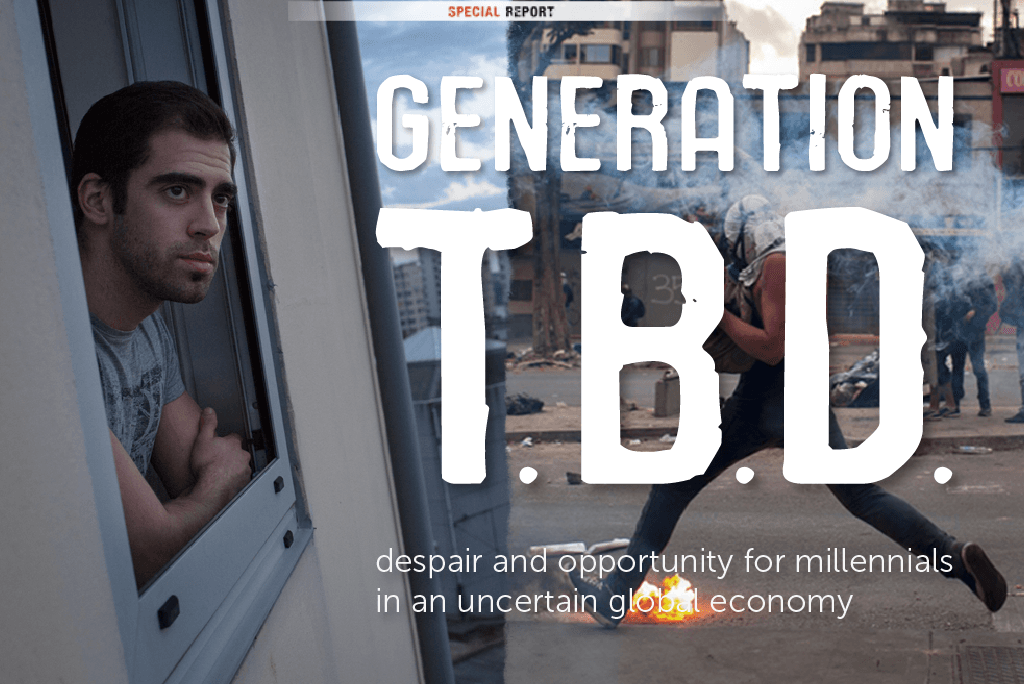Bronx youth turn to unconventional jobs in bleak job market (VIDEO)
Editor's note: This story is part of a Special Report on global youth unemployment, Generation TBD. It was produced by The GroundTruth Project in partnership with the Bronx Documentary Center.
NEW YORK — When Luis ran away from his rural home in Guatemala he had no idea he would end up washing dishes in a New York City restaurant to make ends meet. During his three-month trek to America, he said, he did not envision himself working as a day laborer to send money back home to his family.
“I prayed to God and I told him to bring me over here because I wanted to have a better life,” the 23-year-old recounts. “When you have to work and struggle for the things you want, it makes you wise. If you don’t struggle, you’re not going to grow up.”
According to the New York State Department of Labor, the unemployment rate in September was 8.5 percent in the Bronx, the highest of all counties in New York. That number sat above 10 percent for approximately six years starting in 2009 until falling earlier this year. Political leaders including Borough President Ruben Diaz Jr. and New York Gov. Andrew Cuomo attributed the decline to "state-backed initiatives, such as the Governor’s Unemployment Strikeforce and the NY Works program."
Many Bronx residents do not have high school diplomas and lack the proper skills to be considered for most decent paying jobs. For millennials in the borough, the still-high jobs numbers have become a motivating force to find success.
The struggle of taking on multiple low-paying jobs and joining the informal workforce is the reality for the majority of Bronx millennials. While many blame this generation for their vanity and sense of entitlement, inaccessible education and lack of high-quality jobs suggest otherwise. Their ambition and resourcefulness guide and motivate them to see better opportunities and success.
Louis, who asked that his last name be withheld, says if he had American citizenship and a formal education his dreams of owning a home and car in Guatemala would happen sooner. In the meantime, his goal of reuniting with his family makes standing on the corner of a South Bronx highway for three hours seem less daunting.
For Jamel Edwards, 28, the time he dedicates to investing in his small business goes beyond deciding which merchandise to showcase. Working the graveyard shift for a major retail store and renting out his two bedroom apartment help him stay afloat and meet his financial responsibilities.
“I think it’s becoming a new norm where you have to do multiple things to survive. To get where you want to be financially,” he says.
Edwards looks to technology to compete with the commercialization of the South Bronx. He is currently working on his website and using social media as a means to build brand awareness and attract a larger clientele. He hopes taking on additional responsibility will build a stable foundation for his six-year-old daughter.
“I do a lot of that now so my daughter won’t have to struggle,” he adds.
While struggling may have generated a new breed of young people who have become more ambitious and determined, access to education, resources and other opportunities like apprenticeships will decrease the global youth bulge.
According to the 2012-2013 United Nations State of Urban Youth Report, young people want “equity for better shared prosperity both for their own and their cities’ benefit. They regard education as the best way of bringing about a more equitable type of urban development. These are issues over which local authorities wield a degree of influence that puts them in the best possible position to take remedial action. ”
Every day, reporters and producers at The World are hard at work bringing you human-centered news from across the globe. But we can’t do it without you. We need your support to ensure we can continue this work for another year.
Make a gift today, and you’ll help us unlock a matching gift of $67,000!
